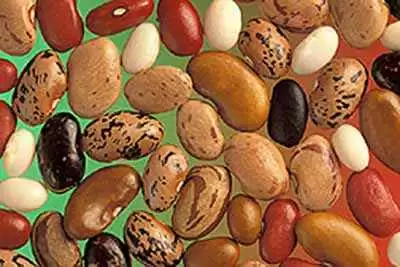Celiac.com 01/26/2016 - If the folks at the United Nations have their way, Americans and people around the world will soon be enjoying the health and nutritional benefits of the lowly pulse.
 For the unfamiliar, pulses are the dried, edible seeds of legume plants, which include things like pinto beans, kidney beans and navy beans; dry peas; lentils; and others. Throughout the year, the United Nations will be promoting 2016 as the International Year of Pulses.
For the unfamiliar, pulses are the dried, edible seeds of legume plants, which include things like pinto beans, kidney beans and navy beans; dry peas; lentils; and others. Throughout the year, the United Nations will be promoting 2016 as the International Year of Pulses.
Celiac.com Sponsor (A12):
Pulses are already a well-known food staple outside of the developed world. On average, pulses make up nearly 75 percent of the average diet in developing countries. India is the world's largest producer and the largest consumer of pulses. Pakistan, Canada, Burma, Australia and the United States, in that order, are significant pulse exporters and are India's most significant suppliers. Canada now accounts for approximately 35% of global pulse trade each year.
With 20-25 percent protein by weight, pulses have twice the protein of quinoa, making them an attractive replacement for meat-based protein. Pulses are also low-water plants, using 90% less water than beef production. Additionally, pulses actually fix nitrogen into the soil, reducing the need for commercial pesticides, and actually improving the soil between crops in fields that once merely laid fallow.
Furthermore, pulses also happen to be naturally gluten-free. That means that pulses are not only nutritious and environmentally beneficial, but that they are also suitable for people with celiac disease and gluten-sensitivity.
So, with their high protein, water efficiency, environmental benefits and gluten-free status, pulses are a perfect crop to be promoting across the globe as we move headlong into the 21st century.
Stay tuned to learn more about pulses and the effort to promote their growth and consumption in the U.S. and beyond.
Source:
Open Original Shared Link







Recommended Comments
There are no comments to display.